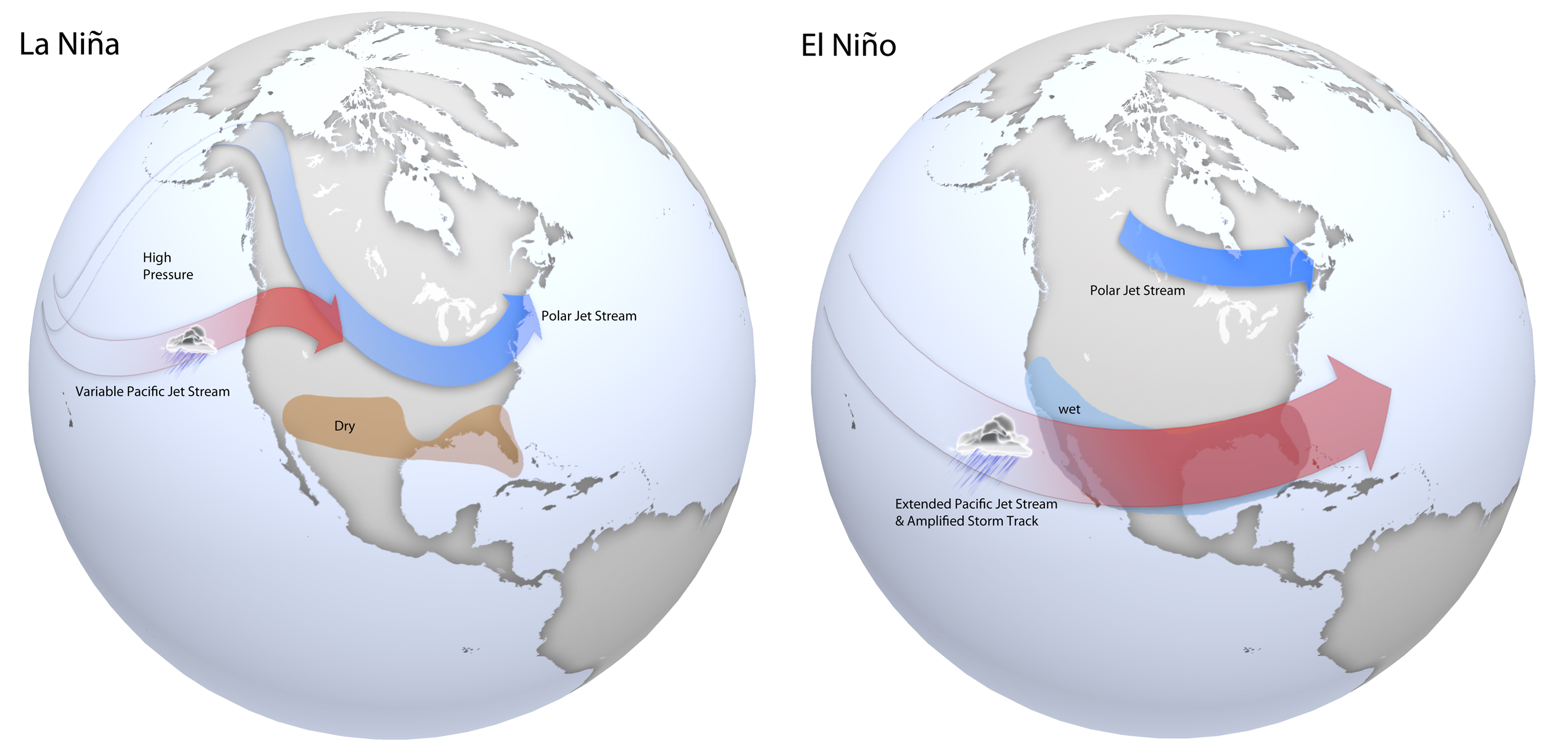NOAA Says La Nina Ocean Cooling Has Finally Arrived, but It's Weak and May Cause Fewer Problems
Source: US News and World Report/AP
Jan. 9, 2025, at 10:25 a.m.
A long-awaited La Nina has finally appeared, but the periodic cooling of Pacific Ocean waters is weak and unlikely to cause as many weather problems as usual, meteorologists said Thursday. La Nina, the flip side of the better-known El Nino, is an irregular rising of unusually cold water in a key part of the central equatorial Pacific that changes weather patterns worldwide.
The last El Nino was declared finished last June, and National Oceanic and Atmospheric Administration forecasters have been expecting La Nina for months. Its delayed arrival may have been influenced — or masked — by the world's oceans being much warmer the last few years, said Michelle L'Heureux, head of NOAA's El Nino team.
“It’s totally not clear why this La Nina is so late to form, and I have no doubt it’s going to be a topic of a lot of research,” L'Heureux said. But even as the temperature signature was late to arrive and small at that, L'Heureux said some of the effects across the globe have shown up and forecasters have made seasonal predictions based on La Nina conditions.
In the United States, La Ninas tend to cause drier weather in the South and West. They tend to make weather wetter in parts of Indonesia, northern Australia and southern Africa, L'Heureux said. They typically bring more Atlantic hurricanes in summer months, but L’Heureux forecast that this La Nina will have dissipated by the summer.
Read more: https://www.usnews.com/news/world/articles/2025-01-09/noaa-says-la-nina-ocean-cooling-has-finally-arrived-but-its-weak-and-may-cause-fewer-problems
Link to NOAA ENSO UPDATE - January 2025 update: La Niña is here
Think. Again.
(20,131 posts)Last edited Thu Jan 9, 2025, 09:43 PM - Edit history (1)
BumRushDaShow
(145,712 posts)It ultimately impacts global weather. For the western hemisphere -


LeftInTX
(31,587 posts)LeftInTX
(31,587 posts)El Nino (warming) suppresses Atlantic hurricanes and causes rain in Southern California. It can cause cooling of the Atlantic waters.
Cooling in the Pacific often leads to heating in the Atlantic.
It's caused by trade winds and the equatorial Pacific current. During cooling, hot water pools up in the west Pacific and leads to storms in Australia, Philippines etc.
Think. Again.
(20,131 posts)...all of these cyclical systems work in tandem with each other to maintain the seasonal "heartbeat" our global ecology depends on.